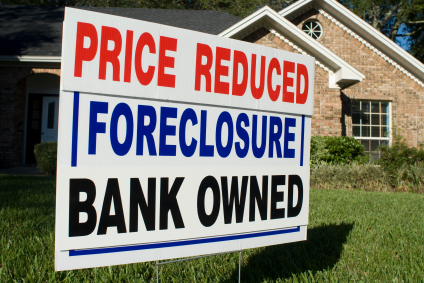Keller Williams Realty
https://www.buyhomesincharleston.com/blog/short-sales-part-1.html
QUICK GUIDE TO SHORT SALES (Part 1)
Posted By: Alan Donald In: Short SalesDate: Fri, Sep 25th 2009 4:13 pm
Short Sales (Part 1 - The Short Sale Process: Definitions, Timing and Consequences
By Alan Donald, BuyHomesInCharleston.com
 Well publicized changes in the real estate market, the job market and the U.S. economy have left many homeowners in distress, with few options to avoid foreclosure or bankruptcy.
Well publicized changes in the real estate market, the job market and the U.S. economy have left many homeowners in distress, with few options to avoid foreclosure or bankruptcy.
As a REALTOR, I don't like the fact that many people are losing their homes, many surrendering the home to foreclosure without even knowing all the options available to them.
Since many clients started to ask me about options, I elected to write a list of some options that could be available for homeowners facing difficult times. (contact me to receive a free copy).
In the Charleston area we started to experience a rush of foreclosures in early 2008 and unfortunately they are becoming more and more common every day.
This article is broken into three parts:
Part 1 - The short sale process: Definitions, timing and consequences.
Part 2 - Selling & buying short sales. How to do it.
Part 3 - Negotiating and communicating with lenders. Do's and Dont's. Secrets for success.
Definitions
A "foreclosure" is when the lender recalls the loan due to non-payment and exercises the right to sell the collateral (the home) as guarantee for the amount owed.
A "short sale" is when a borrower sells a home for LESS than she/he owes, with the lender forgiving the difference (shortfall).This shortfall may include Realtor's commissions, seller concessions, closing costs and possibly some repairs.
Normally, short sales, foreclosures and lender-owned properties are sold "as-is". Which means that the seller (and/or the lenders) will not pay for any repairs required (unless the property is in such bad shape that it is uninsurable). This does not mean that the buyers will lose the right to conduct inspections and release the contract if they find anything worrisome. It means that whatever defects the inspections find, the seller is not going to fix them prior to closing...
Many homeowners prefer a selling using a short sale than losing the home to foreclosure, to avoid the stigma and the credit score penalties associated with foreclosure. Although a short sale will affect the sellers' credit scores negatively, normally it will affect them less than a foreclosure.
For the lender, a short sale avoids going through with a lengthy foreclosure process, hiring an attorney to do the foreclosure, buying it back at auction, evicting the previous owner, finding a local Realtor and placing the home back on the market (normally at a lower price in a declining market) while in the meantime they have to pay taxes, HOA fees, maintenance, utilities and repairs that the property may need.
Short sales are therefore, in certain cases, the preferred option for both homeowners and lenders.
Timing
How long does a short sale take? Normally, a "short" sale is anything but short. Depending on the lender and the particular financial situation (i.e. one or two mortgages, liens, judgements, etc.) and level of active involvement of the homeowner in the short sale process, short sales can take from two to twelve months (typically two to four months, if either the listing agent or the third party handling the short sale is experienced). The main difficulty in negotiating short sales is to bring all the involved parties to a common agreement and get all necessary authorizations in writing.
Consequences
Before deciding to sell short, there are other options that borrowers may wish to consider, and discuss with their lender, attorney and CPA. These include loan forbearance, loan modification, loan refinancing and deed-en-lieu of foreclosure (which is a "voluntary foreclosure" where the homeowner just hands over the keys to the lender with no legal action required by the lender).
Once borrowers decide to sell short, they will need approval from all the lien holders: All mortgagees (first, second, etc.), tax liens, HOA liens, personal judgements against them, etc. Some of these lienholders will only approve the sale if the borrower agrees to sign an unsecured note, or a deficiency note.
In addition, if lenders forgive part of the debt, they may issue the borrower with a form 1099 at the end of the year, indicating the "forgiven" principal as income. Borrowers may have to pay taxes on this "income". It is essential to consider all of these potential consequences before proceeding with a short sale, to avoid nasty surprises afterward!
Next: Part 2 - Selling & buying short sales. How to do it.